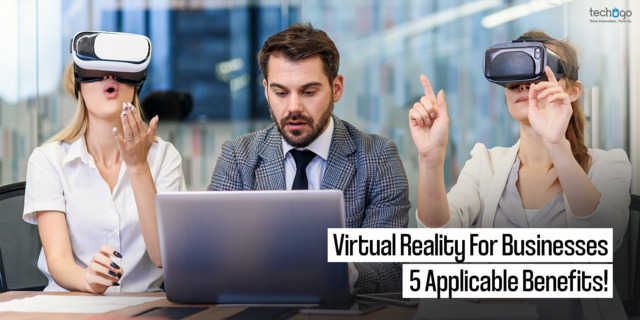Last Updated on April 20, 2024 by Saira Farman
The rise in the use of unique technologies is inspiring many businesses to opt for a better way to run a process. Today in this blog we would be learning more about how virtual reality that has shaken the industry with its capabilities.
Virtual reality is one of the technologies that are receiving a lot of fame from all over the world, right at this moment. The reason behind this is a massive set of advantages it carries with it. From healthcare to education, every industry is trying to hit the nail with the seamless adoption of this tech.
The sensory experience of VR is being used in gaming, entertainment, fashion, and whatnot. Even the budding businesses are leveraging from the same. In this article, we’ll take a look to know how this technology is enhancing the functioning of small businesses and startups. If you too are sailing in the same boat, then follow the below-mentioned tips to get multiple steps ahead of your competitors.
Also Read – Virtual Reality: The Artist Itself in the World of Art!
1. Develop your own prototypes
With the help of virtual reality, there is no need for businesses to rely on manufacturing. And if you especially want to see what exactly the product looks like or how it functions, then your own VR prototype would help you out. The virtual goods let you implement any sort of changes, that too before the production. Developing a model in VR can be helpful in saving company resources. The reason is that the virtual prototypes let the manufacturers thoroughly examine the changes. With this tech, there is no need to waste more time and money in developing a physical model.
2. Boon for engineers
Just like in the field of manufacturing, VR is beneficial for the engineers as well. It makes the processing cost-effective for architectures, engineers, and other professionals working on large-scale construction. What it does is that it simply replaces the traditional approach with a modern one. So despite small 2D models, it offers an immersive experience that streamlines the designing structures.
3. Viewing all the angles of any product
To attract the buyer, e-commerce industries always need to go the extra mile. For this, it is necessary that you give them an idea of what the customer is looking for, by actually showing how the product looks. The customer needs to observe the product from all the possible angles. Through VR, they see a product in action and hence can properly examine it before making the final payment.
4. Promote virtual tours
For a real estate agent, VR technology is definitely a great asset, as it simplifies the process of showing houses to potential clients. This tech is bridging the geographical boundaries. For clients in another state, it is not possible to travel back and forth again and again. VR allows the users to witness the property in 3D, and there is no need to be actually present there.
5. Boosts training
In some situations, manual training can impose a risk on the life of the trainees, or on the resources. Therefore, through VR, businesses can promote virtual training, which would eventually lead to a safe environment for such sessions. Virtual Reality can make the process safer and effective.
These are the 5 major ways in which small businesses can leverage the power of virtual reality. Since tackling this technology is not everyone’s cup of tea, before implementation, it is better to visit the experts. If you have any kind of doubt regarding the same, then feel free to reach out to a leading VR app development company. But until then stay hooked to this space for more exciting updates.







